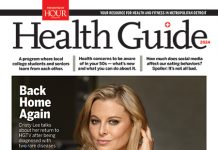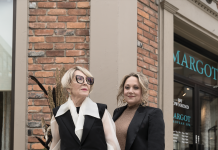 I got my first taste of caregiving 13 years ago when my mother was diagnosed with acute kidney failure. She spent a month in the hospital where they learned she had an autoimmune disease that attacked her kidneys and she would now need dialysis to live.
I got my first taste of caregiving 13 years ago when my mother was diagnosed with acute kidney failure. She spent a month in the hospital where they learned she had an autoimmune disease that attacked her kidneys and she would now need dialysis to live.
Carol Piligian, an artist who also tended to many animals, including horses, llamas, and the occasional rescue duck, was suddenly fragile with complex medical issues.
We were in crisis. It was the first of many times to come.
I stayed by my motherтs side each day, and at night I helped my father, Dr. John Piligian, who had just retired weeks earlier from the very hospital my mother was in. He and I were each otherтs emotional supports as we took care of the animals as well as my mother.
One day I was working on my laptop in my motherтs hospital room and chatting with the nurse, who after a while looked at me quizzically and asked: тWhat do you do for a living?т
тIтm a writer. I can work anywhere,т I told her.
But the fact that I seemed so unusual to her т spending long hours in the hospital т troubled me. I wondered aloud to my father if I was being overly vigilant.
Part of my concern was that we didnтt have a big support system. My only sibling was out of state and my husband did what he could.
Plus, I didnтt completely trust the hospital. Once, in the hours after my mother had a kidney biopsy, she was moaning in pain and appeared to be slowly losing consciousness. This went on for hours. I kept trying to tell a nurse something was wrong. She finally admonished me with: тYou need to calm down.т
Thankfully, one of the doctors was doing rounds later in the evening, so I shared my concern with him. Although nothing had shown up on an ultrasound that was ordered earlier, he didnтt like how she looked and immediately admitted her to the ICU.
We later learned that while the ultrasound test showed nothing, my mother had had a large internal bleed from the surgery, which caused excruciating pain and her blood pressure to plummet.
I could have viewed that as an isolated incident, but something else convinced me to keep a close watch on my increasingly weakened mother: My father told me he had shared my concern of being overly vigilant with a pathology colleague. He told my father: тWhoтs going to watch them more closely than you?т
I never forgot that. It validated my care and concern then and in the years to come. Back then, I helped my parents through roughly three years of my motherтs ups and downs, including giving her a kidney in 2003, which thankfully returned her to a more active life for many years.
But it was the last few years т the last of each of my parentsт lives т that were the hardest. From late 2009 through 2012, we lurched from one health crisis to another with each of my parents coping with multiple chronic illnesses: My father had kidney disease and had been on dialysis a couple of years when we learned he had cancer. My mother was increasingly having hospitalizations for a number of issues, many related to her autoimmune disease.
Like many adults with aging parents, I found myself getting deeper and deeper into the role of caregiver until I fully embraced it, eventually even moving in with my parents to better manage their care т from taking them to doctorтs appointments to managing their medications to running my fatherтs dialysis for him at home.
Iтd officially joined the ranks of the growing number of adult children facing tough decisions about their parentsт care and taking on the vital role of advocate.
Increasingly, experts say, unpaid family caregivers will likely continue to be the largest source of long-term care services in the U.S. as the 65-plus age group is expected to more than double between 2000 and 2030, topping out at about 72 million adults, or one in five, according to the Family Caregiver Alliance. Meanwhile the fastest growing segment of the population is people age 85 and older.
Certainly our aging population owes much to medical advances, but it comes at a cost. Hospitals are increasingly the cause of harm. Recent research published in the Journal of Patient Safety says as many as 440,000 Americans die each year from preventable hospital errors, making medical errors the third leading cause of death in the U.S. And there is the rising risk of infection by antibiotic-resistant bugs, which are especially pernicious to the elderly.
So who is watching out for them?
Itтs not easy to drop much of your life when your parents need help. Families are spread out geographically. Financial or other issues can be hurtles т a job you cannot afford to leave or young children who need their own parent at home. And not everyone has the emotional or physical stamina to be a caregiver.
Still, experts say, adult children have an obligation. тThey owe it to their parents to not leave them stranded, to give them some support, whether they do it themselves, or hire a caregiver,т says Cheryl Riley-Doucet, Ph.D., RN, an associate professor at Oakland Universityтs School of Nursing with a special interest in geriatrics. тItтs part of their responsibility.т
Although I had the challenge of supporting both parents at the same time, neither of whom ever asked me to do this, I never thought twice about my choice. I did it with the same love and devotion a mother has for her children.
I learned a lot in the process, some of which I wish Iтd have known sooner. There are few easy answers and every situation is different. All you can do is your best. But if you do, chances are youтll never regret it.
Be There

Be there when you can as often as you can for your parent. Accompany them to doctorтs appointments, call, and check in regularly. Know what is going on in their lives.
тCaregivers really do have to become educated about the conditions affecting their parent,т says Peter Lichtenberg, Ph.D., director of the Institute of Gerontology at Wayne State University. By being involved, he says, you can see changes like frailty or loss of weight before it becomes a crisis.
Lichtenberg recommends that if you canтt be there to support them, work with other family members, friends, or neighbors to keep an eye on them, or look into case management, which many nurses do, even managing and hiring additional caregivers if needed.
Whether you help your parents stay in their own home т which, like my parents, is what most prefer т or make a decision that some kind of senior or assisted living would be more appropriate, they will still need your support.
тYou need to be involved across all placements,т says Lichtenberg, who sees a lot of variability in the booming business of senior living options. тYou need to check them out.т The best ones, he says, may be expensive, but they can enhance longevity.
Sometimes, the best thing you can do for your parent is to simply be there as their child. Never tell them you know how they feel. You donтt. I couldnтt possibly know the pain my mother was in at times or how much my father grew to detest being tethered to a dialysis machine after five years. What I could do was be there for them, to spend quality time with them. It doesnтt last forever.

Be Vigilant in the Hospital
I know I did the right thing staying close to my parents in the hospital. As Lichtenberg says, тYou need to be vigilant and assertive. Bad things happen in hospitals.т
Of course, many good things also happen in hospitals, but you need to be aware of the dangers. I saw medications Iтd recited for the nurse put into the system incorrectly or somehow changed, thus dosed incorrectly. Calls for assistance would go unmet. Oxygen lines were not always hooked up after transport.
Once, inexplicably to me, my mother was sent for an X-ray of her leg. A day later, the doctor ordered the X-ray again since it was not done. Apparently, the nurse, my father and I guessed, was intimidated to call the doctor when she couldnтt read his writing. Instead she did her best to decipher it. A day was wasted and my mother got radiation she didnтt need.
Another mishap resulted in my mother getting an emergency blood transfusion she did not need. She had gotten some blood the night before, when we brought her in looking pale and weak. The plan was to then scope her in the morning to see where she might be bleeding.
But that morning, according to the lab report, her doctor told me over the phone that sheтd lost all the blood they gave her plus more. I was terrified and expected her to be unconscious when I arrived ahead of my father. Instead, I was shocked to find her looking alert and relaxed with more color in her cheeks.
Several units of blood later, and now with a large central line in my motherтs groin, my father figured out that the lab result was wrong because the blood had not been drawn properly. It was diluted by the saline IV, which explained why all of my motherтs lab values were roughly halved.
You say to yourself at those times when something seems off: тWhat do I know? Iтm not a doctor.т
But often we do know. And as my father correctly observed that day, too often doctors are so focused on test results тthey are not looking at the patient.т
Many mistakes I never would have known about if my father had not been a pathologist, also known as the тdoctorтs doctor.т He was a good teacher, which made me well-versed about each of my parentsт conditions and complications. That gave me the confidence to speak up, ask intelligent questions, and recognize something that didnтt make sense.
You donтt have to be a doctorтs daughter to be a good advocate. For instance, says Lichtenberg, you need to know when someone comes into the hospital with no dementia and then suddenly develops dementia.
Iтd seen both my parents at times act unusually in the hospital, sometimes after getting a new drug. More than one nurse expressed thankfulness and relief for my presence, which in itself could calm my parents. I could also tell the nurse if a reaction was something Iтd seen before or not. As Lichtenberg put it: тYou can tell their baseline.т
I rarely adhered to visiting hours and was never told to leave. In fact, I felt appreciated. As Riley-Doucet says, тNurses are often overloaded. They rely on family to help them.т
Still, caregivers should not feel they have to be watchdogs, says Dr. Samuel J. Flanders, executive vice president of Quality, Safety, and Clinical Effectiveness at Beaumont Health System, who admits: тEven the best nurse or doctor can be distracted.т
A better solution is an error-resistant or error-proof system, he says, something health care is learning from aviation and nuclear power.
More and more hospitals are employing checklists, for instance, and bar coding for medications to eliminate errors, says Flanders, who also teaches hospital and patient safety at Oakland University William Beaumont School of Medicine.
At Beaumont, he says, they also encourage nurses to speak up without fear by letting them do so anonymously if they feel something is not right. Many hospitals are also sharing their own quality data in an effort to be transparent.
Of course, Flanders says, he is a huge advocate for family involvement in the hospital. тIf youтre not there it can be hard to be part of decision making.т
Meanwhile, hospitals are increasingly addressing the aging population with programs such as Nurses Improving Care for Healthsystem Elders (NICHE), a national geriatric care program. And Acute Care for the Elderly (ACE) units, with their interdisciplinary team approach to care with specialists in geriatrics, have been shown to reduce readmissions of older adults, according to a recent study published in the Journal of the American Medical Association.

Be Gentle
Never lose sight of the fact that these are your parents and you are their child.
тThese are very sensitive situations,т says Lichtenberg. тDo not try to parent your parent.
тYou cannot rush in and try to dictate.т
It took me a while to get this. There were times when Iтd get frustrated and argue with my parents when I felt I knew what they needed to do to get better т whether it was to eat certain foods to gain strength, do their exercises, or use a walker if they seemed unstable.
Lichtenberg says the root of this is fear. тThey are afraid of losing autonomy and weтre afraid of what is going to happen if we donтt protect them. Itтs a delicate thing to talk about.т
He recommends a gentler approach, perhaps suggesting that youтve тheard aboutт certain risks they could face, or programs that might help them.
тThis opens the door for communication,т Lichtenberg says. тTry to build those conversations and do it in steps.т
I discovered my parents were more accepting of advice when it came from their doctor or physical therapist, for instance, and not from me. So I partnered with those experts if I had concerns they would not otherwise know about.
Be Good to Yourself
People told me to take care of myself so often it became clichУЉ. тWhat are you doing for you?т Iтd hear, usually through concerned looks of a visiting nurse or other health care provider. Early on, I didnтt understand this. Iтd say: тI donтt care about me. I want to make sure my parents are OK.т
And yet I was under a ton of stress. I often likened my situation to being on a boat that kept springing leaks. Just as I fixed one, another sprung up.
Caregiving is a crash course in learning that you really donтt control much. In fact, itтs the adult children who are used to being in charge and in control of their environment that struggle the most, says Lynn Alexander, who wrote the book Caregiver Tsunami and is president of Your Aging Well Advisor and vice president of public affairs for Presbyterian Villages of Michigan. тThere will be a lot of things that donтt work as you expect,т she says. тYou keep getting hit over and over again with stressors.т
I finally began to realize that if anything happened to me, my parents were in serious trouble. So I did take time to recharge, whether it was meeting a friend, seeing a movie, or going for a run. I also made sure to get my parents out, to go to dinner or visit friends and family. This made me a better caregiver, more patient, less stressed, less likely to take things personally and, with my parents, gave us more quality time.
Itтs also important to ask for help from family, friends, and neighbors. Tell them what they can do, from making a meal to doing the laundry. As I was told: Put the oxygen mask on yourself first, and then you can take care of others.

Be Thankful
When it comes down to it, there are many rewards to caregiving.
тItтs very special to give love and care to your parents and sometimes people get a lot closer,т says Lichtenberg. тIt can also give a child a chance to have some very important conversations they never had before.т
Although I was always very close to my parents, we grew closer. It was hard, it was challenging, but that is when you realize what you really care about.
Something struck me, too, during our last months, something I read in Passages in Caregiving by Gail Sheehy, which became a kind of Bible for me that last year.
тIn an ideal world,т Sheehy wrote, тwe would all be cared for in our last years at homeтІ [with] loving family members with the skills, time, money, and compassion to sacrifice themselves to tend to us тІ т
I realized I gave my parents about as ideal of a world as I could considering the situation. It was my final gift to them.
It was also a gift to myself.
Ь§
Some Resources for Caregivers
Books:
Passages in Caregiving by Gail Sheehy
Caregiver Tsunami by Lynn Alexander
Knocking on Heavenтs Door by Katy Butler
My Mother, Your Mother by Dennis McCullough, M.D.
Websites:
Family Caregiver Alliance,
WSU Institute of Gerontology at WSU,
My Mother, Your Mother,
Area Agencies on Aging in Michigan,
National Association of Area Agencies on Aging,
AARP Caregiving Resource Center,
Administration on Aging,
National Alliance for Caregiving,
National Family Caregivers Association,
National Institute on Aging,
National Caregiving Foundation,
Eldercare Locator,
To learn more about hospital safety, many hospitals publish their own quality and safety data. The Michigan Health & Hospital Association (MHA) Keystone Center also shares safety data and more at
Hospital Safety Score grades hospitals across the U.S.
|
| Ь§ |
|








